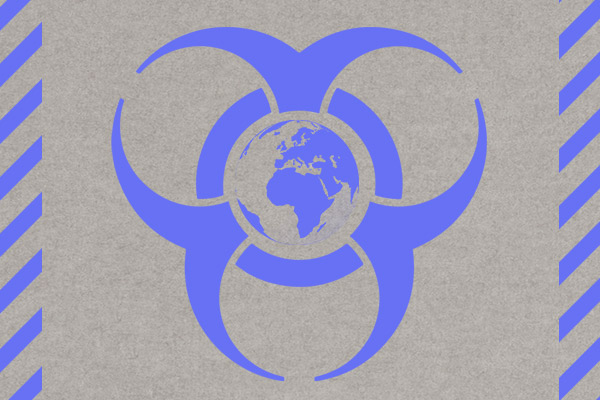The Ninth Review Conference and Beyond
1. Why?
Current advances in synthetic biology, genome editing (such as CRISPR-CAS9), together with advances in artificial intelligence and ‘additive manufacturing’ (3-D printing) are immensely changing the global biosecurity architecture. The Biological and Toxin Weapons Convention (BTWC, popularly known as ‘the BWC’) is the keystone of that architecture. The BWC Review Conferences (RevCons) take place every five years and are the main political decision-making event of the convention.
This course is planned to start ahead of the Ninth RevCon and continue during the conference, helping participants grasp the complexity of global biosecurity through the lens of the BWC by providing a brief but penetrating history of the development of the convention, as well as a focused treatment/consideration of the main themes.
The course is designed for diplomats, government officials, as well as industry and civil society leaders who wish to quickly gain a deeper understanding of this key international normative instrument, and be able to participate and better follow the RevCon negotiations.
2. What?
The first, self-paced part of the course will start on 21 November 2022. The video, audio, and textual material will be available in Diplo’s online classroom.
The curated learning material will be organised around the following topics:
- History of the BWC
- Compliance with the BWC
- International cooperation
- Science and technology review
- Assistance, Response and Preparedness
The second part of the course will include live webinars on the topics listed above, and include interviews and interactive discussions with key BWC experts and participants. The first webinar will take place the week before the Ninth RevCon starts, while the other webinars will be held during it.
During the webinars, course participants will have the opportunity to interact with lecturers, seek clarification, raise questions, and receive immediate feedback.
3. When
- Applications will open on 1 November 2022.
- The classroom will open on 21 November.
- Applications will continue to be accepted until 2 December.
- The first part of the course from 21 to 27 November will be self-paced.
- The second part of the course (from 28 November to 22 December) will be interactive, centered around thematic webinars and classroom discussions. A meeting of course participants and lecturers will be held after the Ninth RevCon ends and will include discussions on lessons learned.
- The course ends on 22 December.
4. Lecturers
The following experts will guide you through this course:
Mr Ljupčo Gjorgjinski
Senior Advisor, Multilateral Affairs, Ministry of Foreign Affairs, North Macedonia
Mr Gjorgjinski is a Diplo senior fellow whose research focuses on the security and diplomatic aspects of frontier science and technology. He was appointed facilitator for Science and Technology of the Ninth RevCon. Gjorgjinski was previously chair of the 2018 BWC Meeting of States Parties and chair of the 2019 and 2020 Groups of Governmental Experts on Lethal Autonomous Weapons Systems, formed under the Convention on Certain Conventional Weapons.
Dr James Revill
Head, WMD and Space Security programmes, UNIDIR
Dr Revill is head of the Weapons of Mass Destruction (WMD) and Space Security programmes at the UN Institute for Disarmament Research (UNIDIR). His research focuses on the evolution of the WMD-treaty regimes, and he has been widely published on issues of treaty compliance and enforcement. Revill was previously a research fellow with the Harvard Sussex Programme at the Science Policy Research Unit, University of Sussex.
Ms María Garzón Maceda
Research Assistant, WMD and Space Security programmes, UNIDIR
Ms Maceda is a research assistant for the Weapons of Mass Destruction (WMD) and Space Security programmes at the UN Institute for Disarmament Research (UNIDIR). She provides research, analysis, and operational support to the programmes’ workstreams, with a focus on biological and chemical weapons. Before joining UNIDIR, she was a policy fellow at the European University Institute where she worked on strengthening the participation of the Global South in WMD regimes.
Dr Jean Pascal Zanders
Disarmament and Security Researcher
Dr Zanders is an independent researcher and consultant who specialises in questions of armament and disarmament, covering chemical, biological, radiological, and nuclear weapons, as well as space policy. Zanders researches the meaning of disarmament in a fast-evolving security context, including the longer-term future of the Chemical and Biological and Toxin Weapons Conventions, the preconditions for new global and regional disarmament initiatives, and related security developments.
Mr Daniel Feakes
Chief, BWC Implementation Support Unit, UNODA
Mr Feakes is chief of the Implementation Support Unit of the Biological Weapons Convention within the UN Office for Disarmament Affairs (UNODA). He was previously the secretary-general of the Eighth BWC Review Conference. Feakes has broad experience both in the field of multilateral disarmament and in working with international organisations. He previously worked as a strategy and policy adviser at the Technical Secretariat of the Organisation for the Prohibition of Chemical Weapons (OPCW).
5. Fees and scholarships
The course fee is 400 EUR per participant, due upon acceptance into the course.
A limited number of full scholarships are available, as well as discounts for more than one participant from the same institution.
Diplomats who have worked or who currently work on Chemical, Biological, Radiological, and Nuclear (CBRN) issues in their ministries will receive full scholarships.
6. How to apply
Fill out this short form to start your application process for this course. You will receive an instruction email on how to continue.


